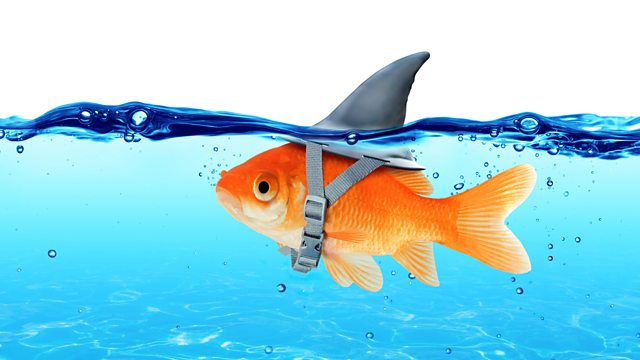Truth
Why is it so difficult to decide what’s true and what’s false in a world riddled with alternative facts?
Every day we’re bombarded with information and, with each new story or alternative fact, we have to decide what we believe to be true.
But some of the mental short cuts we take to sift through this material allow us to be deceived: past experiences, political beliefs and laziness can all cloud our judgment. In this episode of The Why Factor, Sandra Kanthal explores why truth can be elusive. We’ll meet a woman who discovered her husband had been lying to her for 15 years, and fought through her pain to find the truth. We talk with one psychologist who argues that critical thinking skills can be weaponised to encourage a person to believe in conspiracy theories; and to someone who, through extensive research, is convinced the earth is flat. People shape their identities around their notion of truth. This may go some way to explain why it is easier to fool someone than to convince them they have been fooled.
Producer: Chris Browning
Picture: Goldfish Shark
Credit: Getty Images
Last on
Clip
-
![]()
Why question the shape of the Earth?
Duration: 06:05
Broadcasts
- Mon 19 Nov 2018 09:06GMTΒι¶ΉΤΌΕΔ World Service East and Southern Africa & East Asia only
- Mon 19 Nov 2018 13:32GMTΒι¶ΉΤΌΕΔ World Service except News Internet
- Mon 19 Nov 2018 18:06GMTΒι¶ΉΤΌΕΔ World Service Australasia
- Mon 19 Nov 2018 21:06GMTΒι¶ΉΤΌΕΔ World Service East and Southern Africa & West and Central Africa only
- Mon 19 Nov 2018 23:06GMTΒι¶ΉΤΌΕΔ World Service except East and Southern Africa & West and Central Africa
- Tue 20 Nov 2018 02:32GMTΒι¶ΉΤΌΕΔ World Service
Get the podcast
Subscribe or download individual episodes for free
Why do we look the way we do?
Tattoos, trainers, jeans, hair, ties ... why?
Podcast
-
![]()
The Why Factor
The extraordinary and hidden histories behind everyday objects and actions



